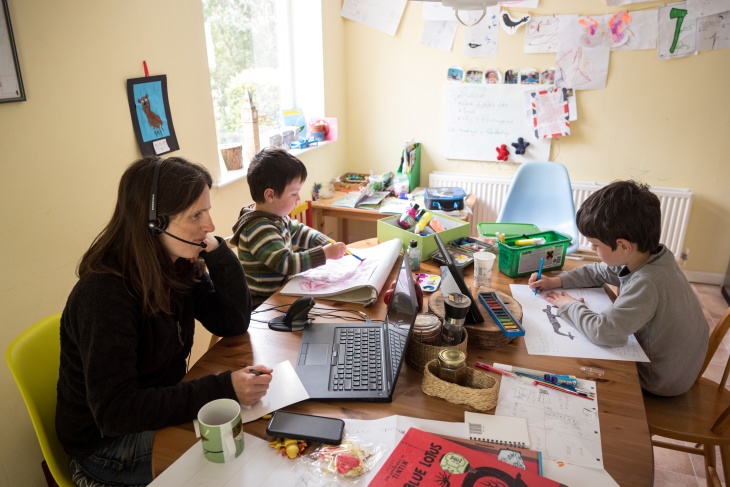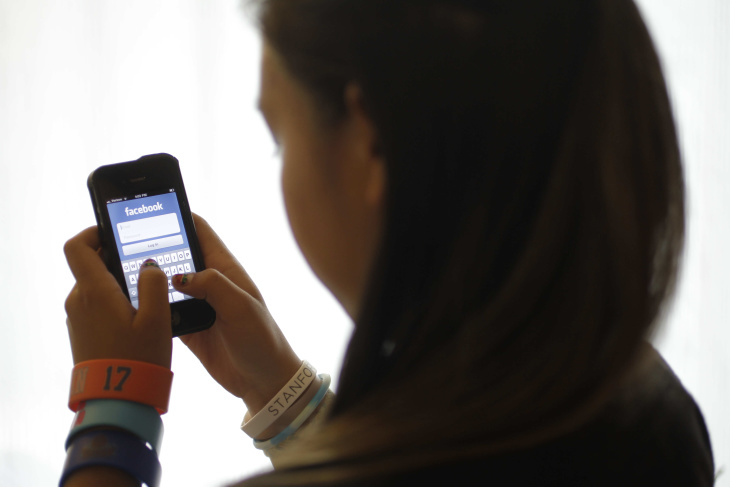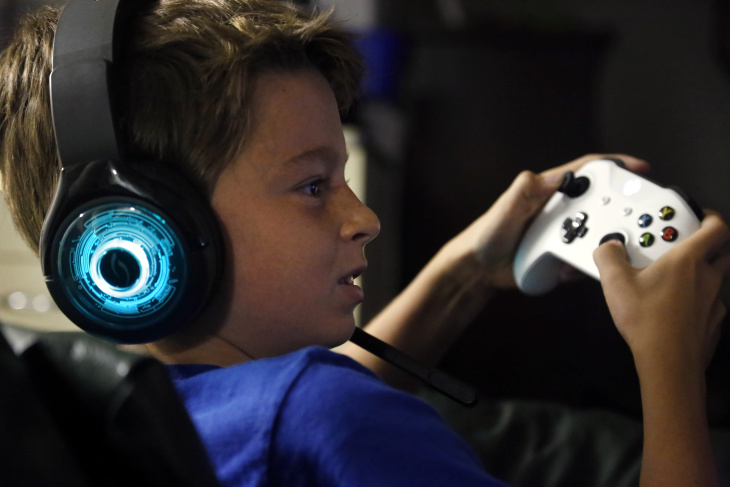
Parents, congratulations. You've survived more than eight weeks of your kids being home 24/7. Whether you're working at home, still reporting to your essential job ... or even if you were already a stay-at-home-parent in the Before Times, this has been rough. But you did it.
Now as we look toward an uncertain future, where summer programs are being cancelled and schools are debating whether or not to resume in the fall, we're with you on the specific feeling of wanting to cry and throw up — all at the same time.
You also probably feel like you want to give up, throw in the towel, let all rules go and allow your children to play by the order of "Lord of The Flies." Actually, that probably happened a while ago ...
Here at LAist, we want to help you process what's going on — and all that you, your partner, and your kids are feeling — by presenting our No Guilt Guide to Parenting during this very weird time.
Here's our first installment. Stay tuned for more each week.
This story was written by Megan Larson and Darby Maloney.
LISTEN TO THE RADIO VERSION BELOW:
Before the global pandemic forced kids to get on Zoom for school and FaceTime for playdates, the screen time issue was already a source of angst for a lot of parents. It doesn't help that we're all now more glued to our devices than ever before ... for everything from telecommuting to grocery shopping to online workouts.
As part of an ongoing series about parenting in a pandemic, KPCC's Take Two had a couple of experts weigh in on how to think — and what to do — about screen time.
Jenny Radesky is Assistant Professor of Pediatrics at the University of Michigan, where she does developmental research on the many ways families use digital media. She was also part of the team that drafted the screen time guidelines for The American Academy of Pediatrics (AAP).
Heather Turgeon is a psychotherapist in Los Angeles and co-author of the books: Now Say This: The Right Words to Solve Every Parenting Dilemma and The Happy Sleeper.
Both of our experts are also moms with kids in elementary and middle school, so you know they get it. Turgeon stresses, above all else, that we all need to "be compassionate and forgiving to ourselves" right now. Afterall, there's no rulebook for how to do pandemic parenting.
Here are some key things we learned:
WHAT DO WE MEAN WHEN WE SAY "SCREEN TIME"?
Bottom Line: Good news — not all screen time is actually considered "screen time."
Here's what our experts said:
What counts as screen time:
- TV shows that kids use to "veg out."
- Game Apps that are not educational (see more on apps below)
What doesn't count as screen time:
- School and extracurricular activities done online (example: Zoom ballet or music class)
- Video chats, texting, emailing with family or friends is considered "connecting," rather than vegging out
- Things deemed "learning time," such as Googling about the kind of food sloths eat, or even watching "how to" videos on making paper airplanes or baking a cake.
- Watching sports. Think of all those classic games airing on ESPN!
- Exercising to a online video such as Yoga or GoNoodle.
- Playing video games with family.
- Watching shows and movies as a family. Turgeon says research shows that "watching [TV and movies] together is beneficial."
- You can find ideas for fun online learning here
Our Real Life Example: Take Two's Senior Producer Megan Larson's 7-year-old daughter really likes watching people make elaborate baked goods (like the host of YouTube's Nerdy Nummies) and then attempt to recreate them at home. Sure, there's a mess, but she's also learned to (sort of) clean up. Megan considers that a win. Also, Outschool has some really cool online classes for as low as $5. Harry Potter Taxonomy Class, anyone? Additional ideas for fun online learning are here.
At The Frame Editor Darby Maloney's home, family watching happens most nights of the week. Each night is different. Survivor one night. Top Chef another. Incidentally, both of those shows are great for discussing human dynamics in a fun way. One night is movie classics night, which sometimes gets switched out for a documentary. On other nights, rom-coms are the go-to. Having a structure of what to watch each night helps avoid indecision. Her 12-year-old daughter is also in charge of a Google spreadsheet, which includes lists of films and TV shows, with a column for where to watch them, how they're rated, and maybe a trailer link. This prevents nights of irritating scrolls through streaming libraries, which can take the fun out of movie night quickly.
TIP: There are ways kids can watch with friends or distant family members, too; there are apps for this, such as Rave or Netflix Party, but it's also easy enough to connect a couple kids through FaceTime or Zoom or Google Meet on a phone or tablet, and then have them all hit "play" on the TV remote at the same time, so they can watch together in real time.

HOW CAN WE FIND GOOD MEDIA CONTENT FOR OUR KIDS?
Bottom line: Do some research and trust your gut.
For kids five-years-old and younger, parents can trust content from PBS Kids and the Sesame Workshop, as well as tried-and-true shows such as Blue's Clues.
"When we know that thought has been put into constructing a story and an educational message for kids, we know that's worth their little brains' time," says pediatrics professor Radesky. "It's going to connect with them. They're going to learn new things from it."
For the 10-to-12-year-old crowd, Radesky says, "there's a gap in knowing what quality media is for kids, but Common Sense Media can help. They're a non-profit resource for parents of all ages to find guidance on all kinds of content that's right for your family. Information is in Spanish and English."
Our tips for the 10-12 year old set: Darby has found that Glee, The Good Place and Gilmore Girls were all good fits for her 12-year-old daughter, and also made for good family viewing. They recently started watching Veronica Mars, which is also good, but a little darker than the others. The Amazing Race and The Great British Baking Show are also consistent wins for this age group — and easy on the parents for family viewing.
Megan recently watched the Michael Jordan ESPN docuseries, The Last Dance, with her kids. A few swear words aside, it was a good family viewing experience. Also, the documentary, Free Solo. The Goldbergs is a zany, but relatable family sitcom, and Lost in Space is good for adventure. Her 12-year-old appreciates the humor of The Office, but can only handle two episodes at a time before Michael Scott's behavior starts to get to him.

WHAT ABOUT APPS?
Bottom Line: Choose apps where your kid is being challenged, instead of being targeted by advertisers.
Be wary of downloading apps that call themselves "educational," but really haven't been vetted by anyone who will make sure that your child is truly learning something. (heck Common Sense Media for app reviews.)
Choose media that is open-ended or creative — not the kinds of games or apps that are filled with "bubbles and explosions" and prizes for the smallest little effort.
Expert's real-life example: Professor Radesky had her son try an app she was studying in her lab and he said to her, "Wow mom, if I watch this ad video I get extra candy. I'm really good at this game!" This, she explained to him, is not really play, but more of an attempt by an advertiser to get his attention (#capitalism). Though it may crush your child to hear that it's not his ace gaming abilities at play in these situations, she stresses the importance of talking to your kids about being smart media consumers.

HOW MUCH IS TOO MUCH?
Bottom line: This depends on the age of your kid and how they react to the screen time, so watch his or her behavior.
The AAP and the World Health Organization (WHO) both have recommendations based on the age of the child. Our experts stress the value of balancing screen time with real world play.
"I think a lot of kids, especially the older ones, they've forgotten the art of playing in the physical world," says psychotherapist Heather Turgeon. "They don't look like they remember how to, or want to, but with some time and getting over the sort of feelings of withdrawal of not being on a screen, they actually can discover so many cool things."
The most important question to ask when assessing screen time for your kid is whether or not it's a good match for your particular child.
Professor Radesky says some kids can spend a couple hours playing video games or scrolling through content on YouTube, and then give up the device easily when asked and go about their day relatively cheerfully. Other kids cannot — they become irritable or distracted when asked to put the screen down. That signifies an unhealthy attachment.
Expert's real-life example: Radesky's 10-year-old son went down "a rabbit hole" looking at Star Wars content on YouTube for a long period of time, and he was "scattered" the rest of the day. What did she learn? That aspect of YouTube was "not a good match for his brain."
"We really want to see that kids get fired up about things other than video games," Turgeon says. "So if the screen time is impinging on your child's ability to engage in the real world, then that's telling you something."
She suggests watching for changes in mood, focus or sleep patterns after your kid consumes new content.
Our real-life example: Darby's 12-year-old daughter started watching Riverdale during this lockdown. Her friends had already been watching the teen soap opera, so she wanted to watch multiple episodes at a time to catch up with them. But her parents soon found that when she watched three episodes in a row, she emerged from that screen-time acting rude and confrontational. So they capped it at two episodes with the rule that if that behavior returns ... then it's clear Riverdale isn't a good match for her.

COMMUNICATION TIPS:
Bottom line: Talk with your kids.
- Agree on a screen time limit with your child and help them stick to it. Decide the length of time your child can play a game or watch a show and then put on a timer. If they're able to stop at the agreed-upon time, then they can maintain that privilege the next day.
- Encourage self-regulation. Talk with them about what they watch and how they feel in their bodies and heads after they watch it.
- Believe in kids' ability — and desire — to play without screens sometimes.
- Use yourself as an example. Turgeon says to be "transparent about this dilemma that we're all in, where we're so reliant on screens." If you tell your kid not to use any apps, but can't put down your own phone, you've definitely undermined your authority.
Expert's real-life example: As a way of helping her 12-year-old son to reflect on his own screen time, Turgeon identified with his problem by saying, "I feel like I'm on screens all the time now!" Her honesty helped bring the issue out in the open, allowing them to both recognize it and both put their devices down.
Our real-life example: Megan finally relented at the start of the stay-at-home order and let her sons play the video game Fortnite. She hates it, but all their friends were playing and socializing through it. She realized, though, that while one son seemed very happy playing and walked away easily, her other son became frustrated and annoyed and walked away feeling down and defeated after being, well, killed off. She talked to him about it, and figured out what bothered him so he could identify it the next time and make adjustments to his play as needed. Sure, she'd like him to drop the Fortnite habit, but that is not an option in this current situation so ... they compromised, kept a time limit on the game and agreed to keep communicating about it.
TIP: This may be a battle at first, but Turgeon suggests dragging out some cardboard boxes (or whatever else you have in the garage) and challenging your kids to build something — a fort, Nerf gun shields, an elaborate hideout. Or take inspiration from Caine's Arcade: at nine-years-old, Caine built a massive arcade in his dad's East L.A. auto shop, which then became the subject of a 2012 short film that inspired a movement.
Quoting the late Fred Rogers, Radesky says: "TV is the only appliance that's better after it's been turned off; because you can take what you just learned and apply it to the world around you."
It may seem harder to do that when screens are our main tool for connecting with the world right now, but if we believe in our kids' ability to play, and point them toward content that inspires them to connect with others in real life, then we're doing okay.
"Fun" - Google News
May 23, 2020 at 06:18AM
https://ift.tt/3efEQbx
Screen Time Fun Time: Tips And Tricks For Elevating What Your Kids Are Watching During Quarantine - LAist
"Fun" - Google News
https://ift.tt/2ZVoWNN
https://ift.tt/3c6iubT
Bagikan Berita Ini

















0 Response to "Screen Time Fun Time: Tips And Tricks For Elevating What Your Kids Are Watching During Quarantine - LAist"
Post a Comment